分散型AIの未来:ノードペイが中央集権モデルを破壊する方法
Nodepayは、ユーザーがアイドル帯域幅を収益化し、AIモデルをトレーニングし、$NCリワードを獲得できる分散型AIプラットフォームです。リアルタイムデータの取得、ステーキング、およびバリデータノードを備えたNodepayは、AIの所有権を再構築しています。動作方法、主な特長、トークノミクス、および将来のロードマップについて学びます。人工知能産業は前例のないペースで成長していますが、その発展は数社の中央集権的な企業によって制御されています。 これらの企業は、巨大なデータセットと計算能力を活用してAIトレーニングを支配し、個々のユーザーにはほとんど参加の機会がありません。 一方、AIモデルは古くて静的なデータセットに依存しており、その精度と現実世界での関連性が制限されています。 新鮮でリアルタイムなデータへのアクセスは、AIの意思決定を改善するために重要ですが、分散型データ収集のインフラは未発展のままです。 その結果、毎日価値あるデータを生成するユーザーは、AI経済から排除され、自分たちが形成する技術から利益を得ることができません。
Nodepayは、ユーザーがアイドル帯域幅を収益化し、AIトレーニングのためのリアルタイムデータを提供できる分散型AIインフラを作成することで、これを解決します。中央集権化されたデータパイプラインに頼る代わりに、Nodepayは、新鮮で高品質なデータストリームを提供し、Nodecoin($NC)報酬を獲得する世界中の参加者のネットワークを利用しています。このユーザー主導モデルは、AIの効率性を向上させ、AI生成価値の公正な分配を確保し、AI開発の制御を分散化します。
Nodepayとは何ですか?

Nodepayは、未使用のインターネット帯域をリアルタイムのデータパイプラインに変換する分散型AIプラットフォームです。ユーザーがプライバシー保護されたノードを通じてアイドル帯域幅を共有できることで、Nodepayは参加者が報酬を獲得しながらAIモデルの向上に貢献する協力的なエコシステムを作り出します。ダレン・ウインによって創設されたこの革新的なアプローチは、正確でタイムリーな情報を活用してAI推論を向上させるために、検索拡張生成(RAG)を活用しています。
Nodepayのミッションとビジョン
Nodepayは、AI開発者とエンドユーザーに有形の価値を創造するソリューションを開発することを目指しています。このプラットフォームは、リアルタイムのデータインテリジェンスを備えたAIを所有しアクセスできるエコシステムを提供することで、AIを民主化することを目指しています。リアルタイムのデータ取得、Web3に焦点を当てた分散型回答エンジン、より正確なモデル出力のための強化学習、ゲーム化された人間の検証を統合することにより、Nodepayは公正で協力的で革新的なAIエコシステムを展望しています。
Nodepayの主な特長
NodeOS Desktop & Mobile – A Unified Client
Nodepayは、クロスプラットフォームのデスクトップおよびモバイルアプリケーションを提供し、ユーザーが帯域幅を共有し、AIワークロードに貢献できるようにします。NodeOSを使用することで、テキストのベクトル化やマルチモーダルAI処理などのタスクのためにハードウェアリソースを提供することで、ユーザーはより多くの収益を上げることができます。また、AIワークロードをバックグラウンドで実行し、個人デバイスの使用を妨げることなく分散コンピューティングをサポートし、Nodepayは個人データを収集せず、未使用の帯域幅のみを共有します。
データ&ワークロードマーケットプレイス
Nodepayは、AI開発者が特定のデータ処理タスクをリクエストできるマーケットプレイスを導入しています。機能には、クライアントがパラメータを定義し、ノードタイプを選択し、処理ニーズを指定するカスタムAIワークロード、スクレイピング、3Dシミュレーション、ベクトル化を含むリアルタイムデータソリューション、分散型ネットワークを介して実行される支払いが$NCで行われることなどがあります。これにより、AI企業はキュレーションされたデータセットに加入し、計算パワーの支払いを行うことができます。
ノード検索 – 分散型AI搭載回答エンジン
従来の古いインデックスデータに依存する従来の検索エンジンとは異なり、ノード検索はリアルタイムで、AIによって強化された検索結果を提供し、リアルタイムデータの更新を活用し、クエリが最も関連性の高い最新の情報を返すようにし、加入者向けのプロ機能を備え、ユーザーは強化された検索機能に対して $NC で支払うことができます。
バリデーターノード&委任
Nodepayのステーキングとバリデータシステムはネットワークのセキュリティとデータ信頼性を確保します。ユーザーは$NCをステーキングしてバリデータノードを運用し、データの信頼性を検証し、スムーズなAIの運用を確保できます。信頼できるバリデータに$NCを委任し、技術的専門知識がなくてもパッシブな報酬を獲得し、ネットワークのアップグレードや報酬分配に関する意思決定に影響を与えるガバナンスに参加できます。
早期アクセス&機能インキュベーションプログラム
Nodepayは、新しいAIツールのテスト、将来の機能やプロトコルのアップデートを形作るための投票権、次世代のAIエージェントを含む新製品へのベータアクセスに対して、初期採用者や積極的なユーザーにNFTベースの特典を提供します。
Nodepayの使い方
Nodepayの利用を始めるのは簡単でアクセスしやすく、誰でも分散型AIインフラへの貢献によって報酬を得ることができます。帯域幅を共有したり、Nodecoin($NC)をステークしたり、AIモデルを訓練したりしたい場合、次の方法で始めることができます。
1. Nodepayのダウンロードとインストール

参加するには、まず、Nodepayブラウザ拡張機能またはモバイルアプリをインストールしてください:
- デスクトップユーザー:Google ChromeストアからNodepay拡張機能を追加してください。
- モバイルユーザー:Nodepayアプリをダウンロードしてください(iOSおよびAndroidで利用可能)。
インストールすると、ノードをアクティブにして報酬を獲得することができます。
2. アカウントを作成する

Nodepayにサインアップして、次の情報を提供してください:
- メールアドレス
- ユーザー名
- パスワード
⚠ 重要: Nodepay は招待制です。収益を有効にするには紹介コードが必要です。
3. ノードをアクティブにする

サインイン後、帯域幅共有ノードをアクティブにしてください:
- Nodepay拡張機能またはアプリを開きます。
- 未使用のインターネット帯埯を共有するために「アクティブ化」をクリックしてください。
- アクティブ化されると、ノードコイン($NC)リワードを受動的に獲得し始めます。
4. 収益を最大化する
Nodepayは、帯域幅共有を超えて、複数の収益機会を提供します:
- $NCをステーキングして、バリデーターになるか、パッシブな報酬のためにDeleGate.comトークンを委任します。
- 強化学習タスクを完了してAIモデルトレーニングに参加します。
- Node Playに参加して、人間検証ゲームから収益を得る。
- 紹介システムを通じてボーナスを獲得するために友達を招待します。
5. 報酬を追跡して収益を引き出す

Nodepayダッシュボードを使用してください:
- リアルタイムの収益と帯域幅の貢献を監視します。
- 暗号財布に$NCトークンを引き出す。
- Nodepayのガバナンスおよび機能インキュベータープログラムに参加する。
Nodepayの動作原理は?
帯域幅共有
ユーザーは、Nodepayの拡張機能またはモバイルアプリをインストールし、デバイスがアイドル状態のインターネット帯域を共有することを許可します。 AI企業は、この分散型ネットワークを使用して、リアルタイムでグローバルに分散されたデータにアクセスします。 伝統的な静的データセットとは異なり、Nodepayのインフラストラクチャは、AIモデルが常に更新され続けることを保証します。 ユーザーは、単にノードをアクティブに保つだけで$NCでパッシブな報酬を得ることができ、参加はシームレスで報酬があります。
リアルタイムデータの取得
AIモデルは、関連性を維持するために常に新鮮なデータが必要です。 Nodepayは、分散ユーザーノードを介してウェブをクロールし、リアルタイムでデータを取得することを可能にします。この分散型データパイプラインは地理的制限をバイパスし、多様な情報を収集し、正確で最新のインサイトをAIシステムに提供します。中央集権的なデータ独占に依存することなく、Nodepayは貢献者がデータ収集に協力したことで報酬を得ることを保証しつつ、AIの効率を向上させます。
強化学習&人間検証
ユーザーは、人間の検証タスクや強化学習プログラムに参加することで、AIモデルを直接トレーニングすることができます。データのラベリング、カテゴリ化、および検証などの活動は、AIの精度を向上させるのに役立ちます。ノードプレイを通じて、ユーザーはゲーム化された検証チャレンジに参加し、AIモデルが実際の人間とのやりとりから学習していることを確認します。その結果、参加者は$NCリワードを獲得し、AI開発がインタラクティブかつ経済的に有益なシステムが構築されます。
ステーキングおよびバリデーターノード
Nodepayは、ステーキングやバリデーターの役割を提供し、ユーザーがネットワークをセキュリティーし、データトランザクションを検証することができます。ユーザーは$NCをステーキングすることで、独自のバリデーターノードを実行するか、既存のバリデーターにトークンをデリゲートすることができます。このプロセスにより、データの整合性、ネットワークのセキュリティー、分散型ガバナンスモデルが確保されます。ステーカーは、貢献に基づいて報酬を得ることができ、NodepayのAIエコシステムの信頼性と持続可能性がさらに強化されます。
ノードペイエコシステム

エコシステムは、ノードコア、ノードネット、およびノードサービスの3つの中核となる柱に基づいて運営されており、それぞれが自己完結型のAI経済を維持する上で重要な役割を果たしています。
Node Core – インフラストラクチャのバックボーン
Node Coreは、Nodepayネットワーク全体を支える基本的なアーキテクチャを提供します。以下を含みます:
- ノードメッシュ:帯域幅プロバイダー、AIクライアント、および検証者を接続する分散フレームワーク。
- キャッシュ&ストレージ:分散システムは効率的なデータの取得と処理を確保します。
- トークン配布&ガバナンス:Nodecoin($NC)の報酬を配布し、コミュニティのガバナンスを可能にするメカニズム。
- LLMプロバイダー&検索API:大規模な言語モデル(LLM)と統合され、AI推論とリアルタイムデータのインデックス作成を改善します。
このインフラストラクチャは、データが効率的かつ安全に処理され、ノードペイの分散型AIフレームワークが強化されることを保証します。
Node Net – カンパニーのグローバル・ネットワーク
Node Netには、数百万の貢献者、検証者、およびAIクライアントが集まり、リアルタイムで動的なAIトレーニングデータを提供するために協力しています。以下を含みます:
- 帯域幅ノード:AIトレーニングをサポートするために未使用のインターネットを共有する一般ユーザー。
- Compute Nodes: AIモデルの精製のための処理能力を提供する参加者。
- ストレージノード:高速かつ安全なデータの取得を確保する分散型ファイルストレージネットワーク。
- バリデーターノード:エコシステム内でトランザクションを検証およびセキュリティを確保するために$NCをステークするユーザー。
リソースをグローバルに配布することで、Nodepayは検閲に対抗し、スケーラブルで常に最新のAIネットワークを作成します。
ノードサービス – AI 開発を支えるツール

Nodepayは、AIイノベーションをサポートするために設計されたさまざまなサービスを提供しています。
- ノードコレクト:コアデータ収集エンジン、リアルタイムでグローバルに分散した情報を収集します。
- ノード検索:ライブ、AI強化検索結果を提供する分散型回答エンジン。
- Node Play: 実際の相互作用から AI モデルが学ぶことを確実にするゲーム化された人間検証システム。
- Node Force: ノード強化学習フレームワークで、ユーザーが直接フィードバックを通じてAIモデルをトレーニングできるようにします。
各サービスは、貢献者が参加に見合った報酬を公正に受け取ることを確実にするために、AIの精度、拡張性、および分散化の向上に貢献します。
Nodepayエコシステムコンポーネント
ノードデータ
Node Dataは、生態系の分散型データインフラを表し、世界中の何百万人もの貢献者からのリアルタイム情報を収集し、保存し、インデックス化します。NodepayのAIトレーニング機能を駆動する生の材料であり、ユーザーの未使用帯域幅から供給され、高品質かつ最新のデータセットを確保するために構造化されています。中央集権的なAIシステムが使用する静的で孤立したデータとは異なり、Node Dataは多様な公開情報の連続ストリームを提供します。Webページ、ソーシャルメディアのトレンド、またはマルチメディアアセットなど、中立で反応性のあるAIモデルのトレーニングに不可欠な情報です。Node Dataはアイドル帯域幅のみを利用し、個人情報にアクセスすることはありません。効率性と信頼性のために、Node Coreのキャッシュおよびストレージシステムを介して管理されます。
ノード Collect
Node Collectは、エコシステムの看板サービスであり、ユーザーがリアルタイムのデータ取得や大規模なウェブクローリングのために帯域幅を貢献できるようにします。Node Netに統合され、アイドルのインターネット容量をデジタル資産に変え、Nodepayが複数のドメインでデータをスクレイプして検証し、貢献者にNCを報酬として返します。2025年3月時点で、Node Collectは210万以上の帯域幅ノードのネットワークを駆使し、AI開発者やビジネスに新鮮なデータセットを提供しています。ユーザーは、ブラウザ拡張機能やアプリを介してNode Collectをアクティブ化し、ダッシュボードを通じて貢献レベルを制御する一方、システムは個人のインターネットパフォーマンスにゼロの影響を保証します。これにより、Node Collectは収益ツールとしては受動的ですが、影響力があります。
ノードフォース
Node Forceは、ユーザーからのフィードバックを通じて強化学習(RLHF)をエコシステムに導入し、ユーザー主導の知能でAIモデルを向上させます。Nodeサービス内で動作し、データのラベリング、検索結果の洗練、または独自のAIモデルのトレーニングなど、貢献者が受動的な帯域幅共有を超えてアクティブな入力を提供できるようにします。このコンポーネントにより、エコシステムは適応的かつ応答性があり、人間のフィードバックループがモデルの精度と関連性を時間とともに向上させます。参加者は取り組みに応じて追加のNCを獲得し、企業は調整されたAI出力にアクセスできるため、ネットワーク全体の知能を高める共生関係が生まれます。
ノードウォーズ

Node Warsは、Telegramベースのミニゲームノードサービス内で、エンターテイメントとエコシステムのユーティリティを融合させます。これには、ユーザーの人間性を検証してボットと戦う(シビルレジスタンス)という二つの目的があり、アクティブな参加を報酬として提供します。プレイヤーは、リーダーボードとソーシャル機能(War Coinsの贈り物など)を通じて追跡されるスキルに基づくチャレンジに参加し、NCに換算可能なNode Pointsを獲得します。2025年3月までに、Node WarsはNodepayのエアドロップトークンノミクスと統合され、Seasons 0、1、2のポイントがTGE後の最初のNC配布に貢献します。報酬の先に、ネットワークのセキュリティを強化し、真の人間同士のやり取りを確実にすることで、Node Validatorsに重要な補完を提供します。
ノード バリデータ
Nodeバリデーターは、ノードネット内で運用され、ノードコアのブロックチェーンフレームワークによって駆動される、エコシステムのセキュリティおよびガバナンスの執行者です。これらのノードは、自身の資産をステークするNCトークン保有者によって運営され、取引の検証、データ整合性の確認、ネットワークの分散型信頼の維持を行います。2025年3月までに、バリデーターはSolanaベースのブロックチェーンを保護する上で中心的な役割を果たし、Node Collect、Node Data、および他のサービス全体で透明性を確保しながらステーキング報酬を獲得します。このコンポーネントは、エコシステムを詐欺から守るだけでなく、ガバナンス投票を通じて将来を形作るためのトークン保有者に力を与え、Nodepayの分散型の精神を強化します。
ノードポイントと報酬システム
ノードポイントは、NCトークンの発売前後におけるNodepayエコシステム内でのユーザーの貢献を数量化するデジタルスコアリングシステムです。最初はTGE前の指標として導入されたノードポイントは、帯域幅の共有や紹介などの活動への参加を追跡し、ユーザーの$NCエアドロップの資格を決定していました。TGE後、ノードポイントは継続的な報酬通貨に進化し、リアルタイムのネットワーク活動を反映した動的なレートでNCに交換可能となりました。ノードポイントはオフチェーンのプラットフォーム管理ユニットであり、Nodepayの中央ダッシュボードを介して追跡され、後にオンチェーンの$NC取引と調整されます。このハイブリッドアプローチにより、Nodepayの成長段階での柔軟性が確保されつつ、その分散化の倫理に沿ったものとなっています。
ノードポイントの動作方法
ノードポイントシステムは、階層化されたアーキテクチャ上で動作します:
- 発生:ポイントは、貢献量、品質、およびネットワーク需要に関連する事前定義された式を使用してリアルタイムで計算される特定のエコシステム活動を通じて獲得されます。
- ストレージ:TGE前、ポイントはユーザーウォレットに関連付けられたリレーショナルデータベースに記録されていました。TGE後は、透明性のためにSolanaスマートコントラクト上でミラーリングされます。
- 変換:ポイントは可変レートでNCに変換され、ソラナ上でトークンブリッジまたはバーン/ミントメカニズムを介して実行されます。
- 配布:報酬は毎日または毎週支払われ、Nodepayダッシュボードで確認でき、NCの支払いにはSolanaウォレット(例:Phantom)が必要です。システムは貢献の証明モデルを使用し、Nodeバリデータはポイントを獲得するタスクを確認して整合性を確保します。ユーザーごとの1日のポイントの上限はゲーム化を防ぎ、初期採用者(最初の1,420ノード)にはロングタームの忠誠心を高めるマルチプライヤーがあります。
ノードポイントを取得する方法
ノードポイントは、エコシステムの構成要素全体でさまざまな活動を通じて獲得され、それぞれが異なるメカニクスと報酬ティアを持っています。
- 帯域幅共有(ノード収集):ユーザーは、未使用のインターネット帯域幅をWebクローリングやデータ取得のために共有するために、ノード収集クライアント(ブラウザ拡張機能またはアプリ)をインストールします。クライアントは、アップロード量とレイテンシを測定し、QoS設定によってスロットル制御されます。ポイントは線形に蓄積され、たとえば、データ転送1 MBあたり1ポイントで、ネットワークの需要によって調整されます(ピーク時のAIトレーニングサイクル中はより高くなります)。1日に1 GB共有する典型的なユーザーは、約1,000ポイントを獲得します。データはSHA-256チェックサムによってノード検証者によって検証され、報酬はTGE後のSolanaスマートコントラクトを介してNCとして鋳造されます。
- ヒューマンフィードバック(ノードフォース):ユーザーは、ノードフォースインターフェースを介してRLHFタスクに参加します—データセットのラベリング、検索結果のランキング、またはAIモデルのトレーニング—。タスクは、提出前にバッチ処理され、暗号化されます(AES-256)。フィードバックは、ノードネットの計算ノード(GPUクラスター)で処理され、勾配はフェデレーテッドラーニングを介して集約され、NCペイアウトがトリガーされます。
- Node Warsのゲームプレイ:プレイヤーはTelegramを使用してミニゲーム(例:反射チャレンジ)に参加し、人間性を検証し、NodeポイントのサブユニットであるWar Coinsを獲得します。各ゲームラウンド(50-100ミリ秒の遅延)で10-50 WCが授与されます。ゲームの状態はWebSocketsを介して同期され、サイビルチェックはMerkle証明を使用してNodeバリデータによって検証されます。
- 紹介:ユーザーはダッシュボードで追跡される独自の紹介リンクを介して他のユーザーを招待します。成功したサインアップ(アクティブなノード)はボーナスをトリガーします。直接紹介者のポイントの20%(たとえば、1,000ポイントを獲得した場合、200ポイント)、2次紹介の場合は10%、3次紹介の場合は5%で、ユーザーごとに月間5,000ポイントまでキャップされます。
- アーリーアダプターマルチプライヤー:最初の1,420ノード(TGE前のパイオニア)は、すべてのポイント獲得活動に対して終身2倍〜5倍のマルチプライヤーを受け取ります。1日1,000ポイントを獲得するユーザーは、マルチプライヤーで2,000〜5,000のポイントを獲得でき、その基盤的な役割を反映しています。マルチプライヤーは報酬スマートコントラクトにハードコーディングされており、ウォレットアドレスによって検証されています。
報酬システム構造
報酬システムは段階的で適応型です:
- ベースティア(パッシブ):ノードコレクトを介した帯域幅共有は、カジュアルユーザーに魅力的な、安定した低労力ポイント(例:1日500〜2,000ポイント)を提供します。
- アクティブティア:ノードフォースとノードウォーズは、参加者により高い収益(1,000-5,000デイリー)を提供します。タスクの難易度に応じて報酬がスケーリングされます。
- ネットワークティア:紹介およびアーリーアダプターボーナスは収益を指数関数的に増加させ、コミュニティの成長を促進します。
ノードコイン トークノミクス

Nodecoin($NC)は、Nodepayエコシステムのネイティブユーティリティトークンであり、貢献者への報酬、ネットワークのセキュリティ確保、AI駆動のサービスの促進を目的として設計されています。 Nodepayの経済的支柱として機能し、帯域幅の共有、検証者の参加、AIモデルのトレーニングを奨励し、分散化と長期的な持続可能性を確保します。 総供給量は10億トークンで、長期的な成長とエコシステムの安定性を確保するために戦略的に割り当てられています:
- コミュニティインセンティブ(42%)- 帯域幅プロバイダー、AIトレーナー、およびノードオペレーターへの報酬。
- エコシステム基金(22.5%)- ネットワークのアップグレード、流動性、および拡大のサポート。
- 投資家(21.5%)-主要なベンチャーキャピタルと戦略的パートナーシップを通じて開発資金を調達する。
- チーム割り当て(14%)–プロジェクトビルダー、開発者、および長期的な持続可能性のために予約されています。
$NCのユーティリティ
Nodecoinは、Nodepayエコシステム内で多様な役割を果たし、さまざまな活動を支えています。
- AIワークロードの支払い:AI企業は、リアルタイムデータにアクセスし、ノード検索に加入し、カスタムAIトレーニングデータセットをリクエストするために$NCを使用します。
- 帯域幅共有報酬:アイドルなインターネット帯域幅を提供するユーザーは、$NC トークンを受動的に獲得します。
- バリデータのステーキングとデリゲーション:バリデーターは、ネットワークを保護し、AI関連のデータトランザクションを検証するために$NCをステーキングします。
- ガバナンス参加:トークン保有者は、プロトコルのアップグレード、機能の展開、および報酬構造に投票することができます。
- NFTベースのインセンティブ&アーリーアクセス:$NCをステーキングするユーザーは、NFTリワード、独占的なAIプロジェクトへのアクセス、および機能テストの機会を受け取ります。
$NCを稼ぐ-ユーザーの利点
Nodepay参加者は、$NCを次の方法で蓄積することができます:
- ブラウザ拡張機能やモバイルアプリを通じた受動的な帯域幅共有。
- ステーキングおよびバリデーターノードへの$NCの委任。
- AIトレーニング、データ検証、および強化学習タスクに参加する。
- Node Playを通じてゲーミフィケーションされた検証チャレンジに取り組む。
- Nodepay開発者プログラム(NDP)を使用してAIツールを構築する。
資金調達

Nodepayは、IDGキャピタル、Mythos、Elevate Ventures、IBC Group、Optic Capital、Funders.VCからの支援を確保し、合計700万ドルを調達しました。Etherscanの創設者であるMatthew TanやCoinHakoの共同創業者兼CEOであるYusho Liuなどの著名な投資家も含まれており、Nodepayの分散型AIインフラストラクチャに対する信頼が強化されています。
この資金提供により、Nodepayのエコシステム拡大が加速し、AIモデルのトレーニング、バリデータインフラストラクチャ、リアルタイムデータ取得システムのサポートが行われます。さらに、NodeOSの強化、データ&ワークロードマーケットプレイスの立ち上げ、分散型回答エンジンNode Searchの改善にリソースが割り当てられます。
ロードマップ

Nodepayは、2025年に分散型AIインフラを拡張し、ユーザー報酬の向上、AIトレーニング効率の向上、ネットワークの分散化の強化を目指す大規模なアップグレードを予定しています。
NodeOS デスクトップ&強化されたモバイル統合:新しいクロスプラットフォームクライアントにより、デスクトップノードとモバイルノードが統合され、ユーザーはプライバシーファーストのAIインタラクションを維持しながら、より多くの計算能力を提供できます。
データ&ワークロードマーケットプレイス:Nodepayは、AI開発者がカスタムデータリクエストを提出し、リアルタイムのAIトレーニングデータセットにアクセスし、Nodecoin($NC)を使用してサービスを支払うことができるマーケットプレイスを立ち上げます。
ノード検索オープンベータ:分散型AI回答エンジンがパブリックテストに参加し、生のAI搭載検索結果と強化データアクセスのためのProサブスクリプションを提供します。
バリデーターノード&ステーキングv2:より堅牢なバリデーターシステムが導入され、ユーザーが信頼できるバリデーターの後ろに$NCをステークし、ネットワークセキュリティ参加者により高い報酬が得られるようになります。
AIエージェントと強化学習:NodepayはエージェントのAI機能を統合し、ユーザーがカスタムAIモデルをトレーニングしてNFTベースのインセンティブを獲得できるようにします。
結論
Nodepayは、ユーザーの手に制御を取り戻すことで、AIインフラストラクチャの構築方法を再定義しています。個人がアイドル帯域幅を収益化し、AIトレーニングに貢献し、$NCをステークすることで、分散型の報酬駆動型AIエコシステムを作成します。 180万人を超えるユーザー、強力な投資家の支援、野心的なロードマップを持つNodepayは、中央集権化されたAIモデルを破壊し、すべての人に公平な参加を保証する位置にあります。貢献者、開発者、または検証者であろうと、Nodepayは、AIの未来を形作りながら実際の報酬を得るユニークな機会を提供しています。
関連記事
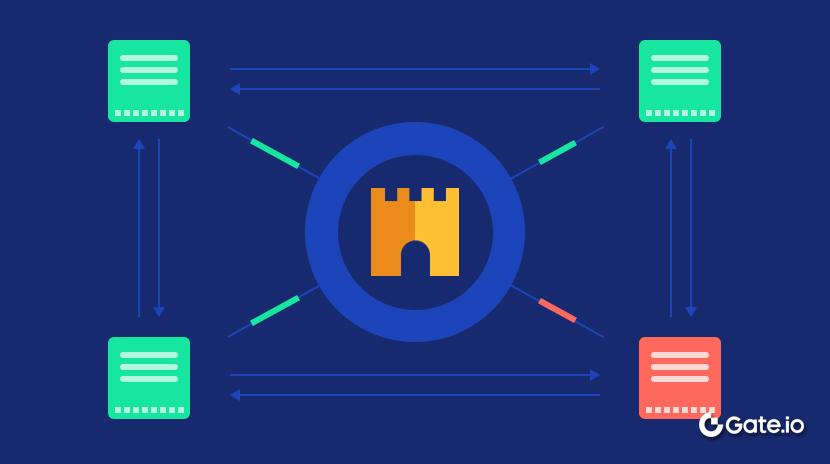
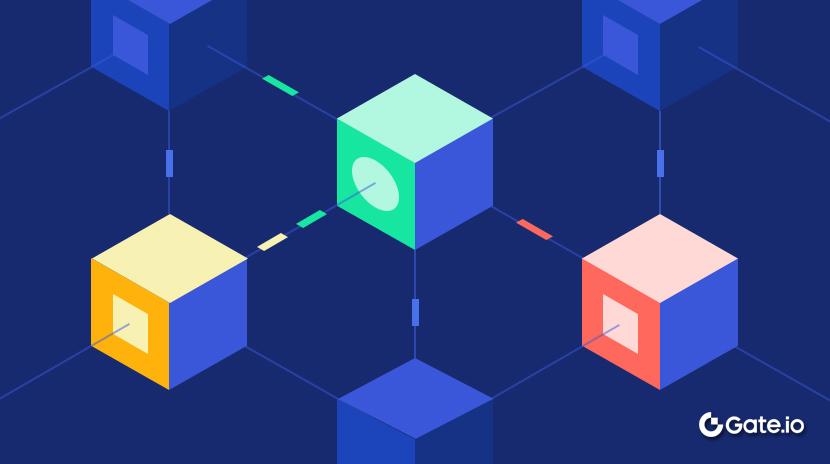
ブロックチェーンについて知っておくべきことすべて
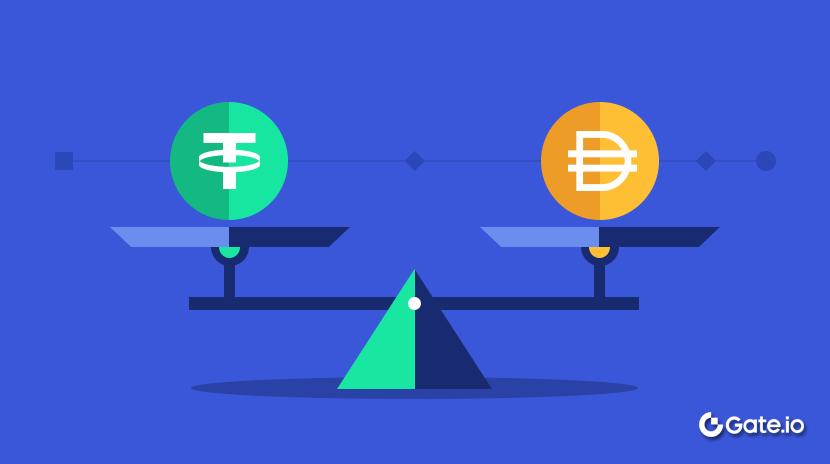
ステーブルコインとは何ですか?
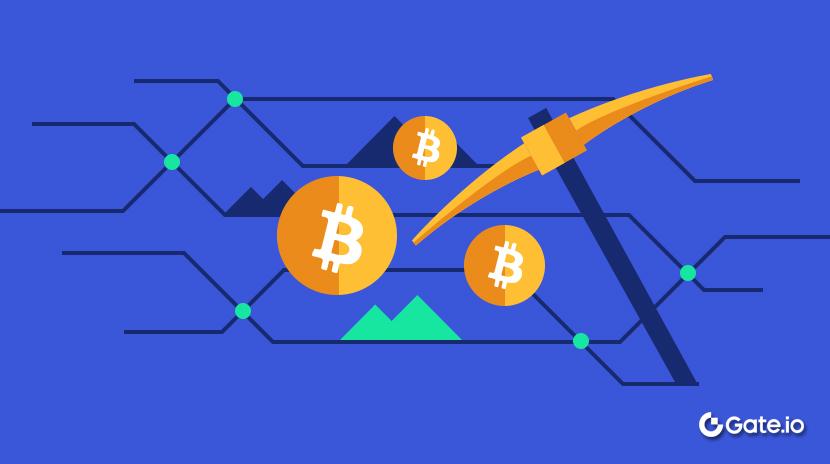
流動性ファーミングとは何ですか?
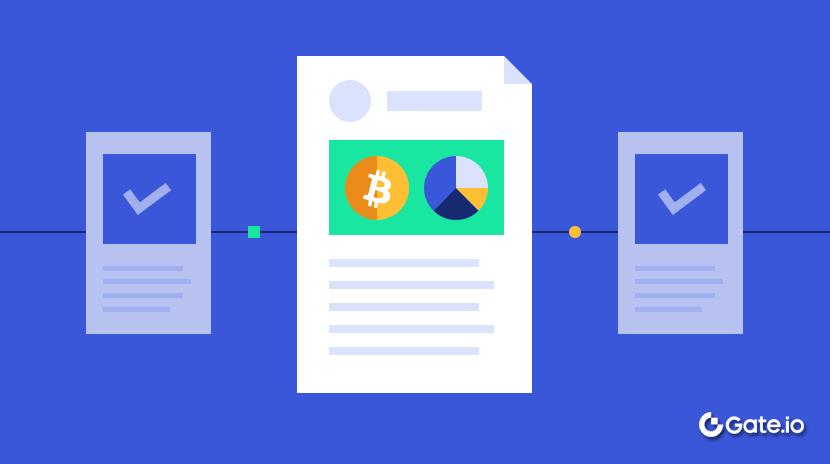
分散型台帳技術(DLT)とは何ですか?


